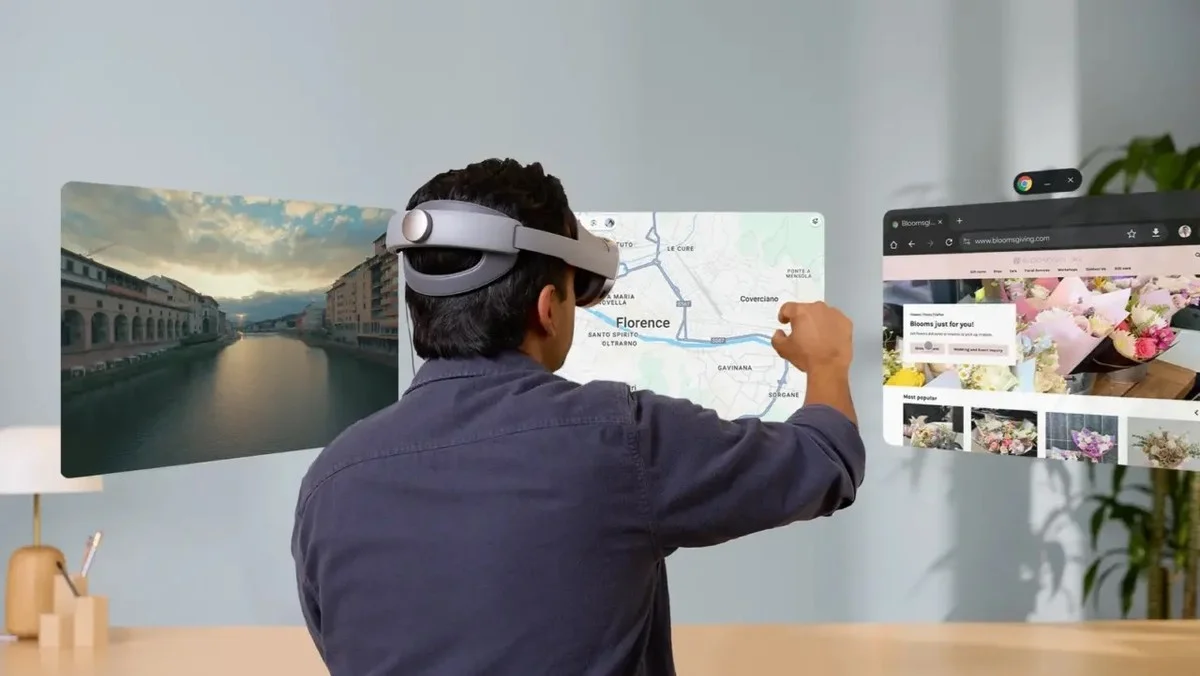28/10/2025
28/10/2025

NEW YORK, Oct 28: Samsung and Google unveiled the Galaxy XR headset this week, signaling a major push into spatial computing and immersive AI experiences. Priced at $1,799, the device runs on Android XR, Google’s new spatial operating system, and integrates Gemini, Google’s most advanced artificial intelligence, to enable 3D navigation and interaction.
The Galaxy XR is designed to do more than simply replace a traditional screen. Users can interact with the device through voice, hand gestures, or eye movements, pin multiple apps to a virtual workspace, and enjoy content such as YouTube videos or NBA games in a private digital theater.
Google describes the headset as a tool to extend Android beyond phones, offering features like 3D photography and real-time searches through “Circle to Search.” The company positions the Galaxy XR not only as a gadget but also as a platform to showcase how AI can integrate with hardware in everyday environments.
Key features include:
- Gemini AI, which can interpret user activity and respond to visual cues.
- Context-aware interactions, such as asking about a person in a YouTube video or a landmark in Google Maps Immersive View.
- Real-time app management, where Gemini can organize Chrome, Meet, and Docs applications mid-air.
The Galaxy XR is part of a growing trend in ambient, spatial computing, comparable to Apple’s Vision Pro, but built on Android with access to Google’s full app ecosystem.
The headset comes with an “Explorer Pack,” which includes 12 months of Google AI Pro, YouTube Premium, Google Play Pass, and NBA League Pass, aiming to maintain long-term user engagement. Industry analysts note this approach mirrors Apple’s strategy with bundled services such as iCloud and Fitness+.
For Samsung, the Galaxy XR represents a chance to regain prominence in a product category it has not dominated since the early smartphone era. By combining Samsung’s hardware with Google’s AI and Android ecosystem, the companies hope to position XR technology as a central tool for work, entertainment, and search in the AI age.
Experts say the Galaxy XR is not just another headset—it exemplifies the next stage of immersive computing, putting AI “practically in front of your face” and making Google’s ambitions in spatial computing and AI more tangible.


